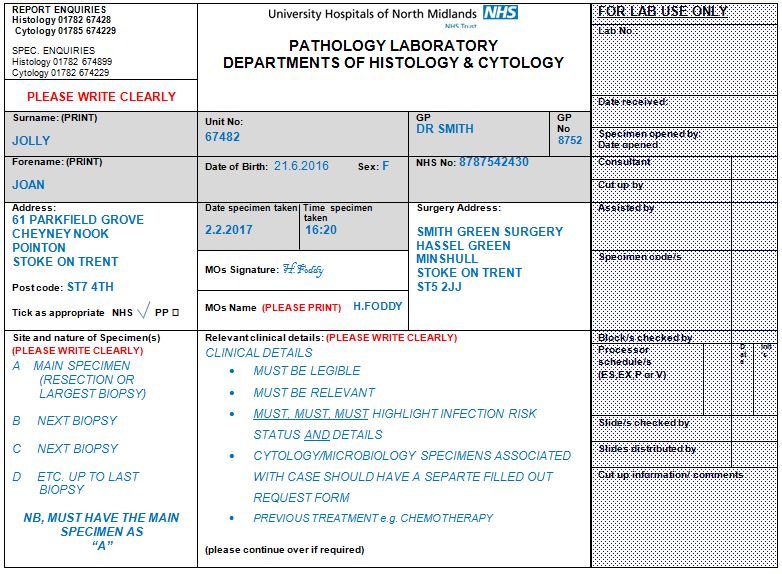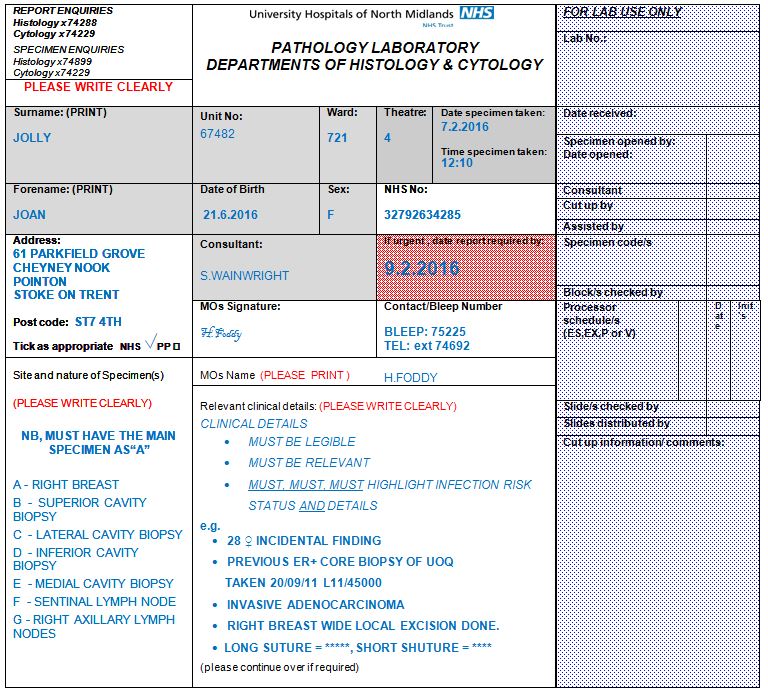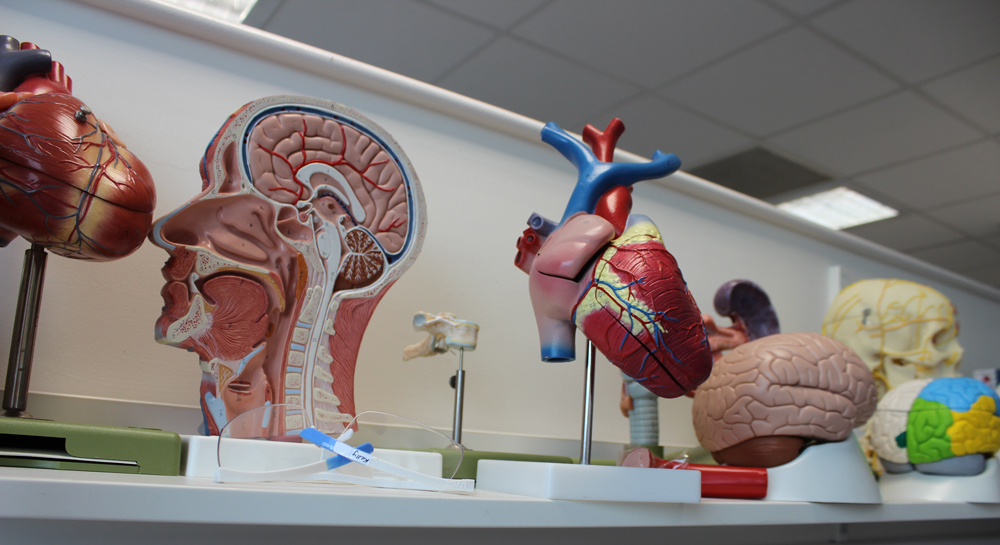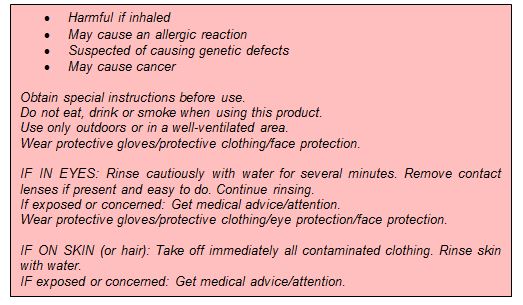Please note the request forms are titled as 'Pathology Laboratory Departments of Histology & Cytology' and should be completed for either Histology or Non-Cytological test requests.
Provision of 'Histology & Cytology' request forms
The ordering of 'Histology & Cytology' request forms is dependent on where the source department, ward or clinic is located.
- For Staffordshire based users, request forms and specimen bags can be requested from UHNM Procurement and Supplies department (contact x72672).
- For Cheshire based users, request forms and specimen bags can be requested from MCHFT Pathology Reception team at pathology.reception@mcht.nhs.uk.
It is imperative when sending any Histology or Non-Gynaecological specimen to the UHNM Histology laboratory that it should be accompanied by the correct and complete 'Histology & Cytology' request form. All sections of the request form should be completed as shown on the provided example (see below). Failure to do so WILL result in rejection and the returning of the specimen and request cared to the requesting Clinic, Ward or GP practice for amendment and return.
If other pathological tests are required alongside a Histology or Non-Gynaecological specimen, separate specimens and separate request forms MUST be submitted as the specimen(s) will be dealt with in different laboratories which are in different locations. These samples cannot be shared.
The minimum data set for completion of the 'Histology & Cytology' request cards and specimen pots must be followed. This can be found in UHNM Policy Number C49 – ‘Policy for Requesting Patient Investigations and Referrals and the Reporting and Interpretation of Results’.
All 'Histology & Cytology' request forms MUST have the NHS number noted on the form. It is vital that request forms are correctly completed and more importantly, legible. 'Clinical details' are a vital part of the Histology request and integral to aiding in a diagnosis.
In addition;
- For colonoscopy biopsy cases please also ensure that a copy of the Colonoscopy Report is attached to the request form. Reports may be delayed if notes have to be retrieved by pathologists in cases where clinical information provided on the requests card is deficient.
- For Products of Conception (POC / RPOC) please ensure an appropriately completed and legible 'Histological Investigation Consent Form' is attached to the request form.
Please ensure the resection or main specimen is labelled as “A” on the request card and representative specimen pot/container. The proceeding specimens should then be labelled as ‘B’, ‘C’, ‘D’ etc.
Please do add any further 'relevant' information to the request form where required, including the following examples;
- Information regarding danger of infection status if known or suspected.
- Radioactive specimen.
- Note if the patient is on a 'cancer pathway'.
- Note 'breach dates' for MDT if applicable.
The UHNM Histology laboratory runs a very strict zero tolerance approach to ALL Histology requests. Specimens WILL be returned if the correct format is not followed and appropriate information is not provided. This zero tolerance approach is designed to ensure the correct and accurate receipt of specimens and request cards, to sufficiently fulfil the laboratory requirements for safe and reliable testing and result provision.
Failure to follow this procedure will result in delayed testing and ultimately delayed receipt of the final report and results.
To ensure your 'Histology & Cytology' request card is accurately filled out, please study and follow the template/s and example provided over page. The example test required is in blue text.
All patient and requestor details shown in red must be completed and correct to ensure acceptance.
Please ensure the name of the consultant is shown in the consultant field and not the requesting clinician. This will also cause rejection of the specimen.





